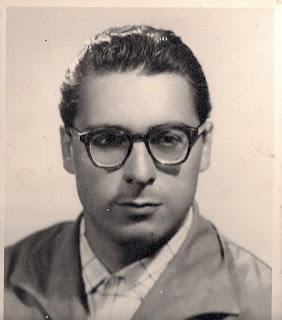How to
survive with a doctor in the family
My dad has
been a doctor all his life, and still is, though he retired ten years ago. We were lucky to have him at hand for
whatever we needed from an ordinary stomach ache to measles, kidney infections
or heart attacks. There were plenty of
tablets, syrups, bandages, plasters and creams at home so we did not need to
queue at the pharmacy. On the other
hand, when one member of the family was ill he was the only doctor we could
refer to and whatever he said was gospel.
There was no appeal.
My father
had his way of seeing illnesses, as most doctors have, which changed slightly
over the years.
“Are you
sick? All right, let’s see how it goes,” he used to say. “Let’s wait a few days, it could be nothing,
or it could be a virus. If it isn’t a
virus I’ll give you antibiotics. Other
medications are useless; they only damage your stomach and fill the pockets of
Pharmaceutical Companies. Have some
water and sugar in the meantime.”
After a few
days he saw clear improvements so medications were definitely banned. At this point we had two options: recover
quickly or die. We have always chosen
the first one.
When he was
older and had grandchildren he became a bit more worried about us all, and
uncertain in his diagnoses. He sounded
relieved when the paediatrician or another doctor prescribed us some
medication. When my children had a high
temperature he used to listen to their chests for long minutes and say with an
anxious tone: “I can’t hear well, take them to the paediatrician.”
Now he is
having more frequent checkups himself, aware that his old body might choose the
second option if he doesn’t take care of it properly.
When I was a
child I spent days at home with high temperatures due to measles, mumps,
whooping cough (there were no vaccinations for them at the time) or just flu,
waiting for it to pass. I played with a
big plastic doll and drew with wax pastels in my parents' huge bedroom, where
my bed was. It was a break from school
and routine. I felt purified and
fortified when it came to an end.
At a certain
point of my life a smelly, shocking-pink liquid became the regular cure for
high fevers. A terrible sensation of
gagging used to grip my throat each time I swallowed a spoonful of the loathsome
pink solution. I regretted my earlier
childhood days when my forehead burned freely, the only relief a glass of water
and sugar.
Another
medication I couldn’t escape - I was too young to oppose it- were fortifying
shots. My parents thought me too skinny
and were firmly convinced I did not eat enough.
They couldn’t force me to eat more so they decided that for my own good
a few jabs wouldn’t do me any harm. But
they hurt a lot and there must have been quite a few because the course lasted
for weeks. It was awful waiting for the
jab and the liquid burned. My parents
certainly felt better after my cure. I
felt riddled with holes.
When I was
pregnant, especially during my first pregnancy, which was incredibly smooth,
they were seriously worried about what hospital I should go to. They collected a series of creepy stories
concerning eighty per cent of the hospitals in Rome, where it seemed people
might still have big problems when delivering a baby. Finally they found the right one and I must
say I was lucky to be in a good hospital because the baby decided to come out
three weeks early and was a breech.
Luckily none
of the family has been seriously ill. We
all grew up and are becoming older. We
are healthy and moderately happy. My dad
is always ready for medical advice and a series of good prescriptions and
checkups. Now he feels we need to have
them without fail.


No comments:
Post a Comment